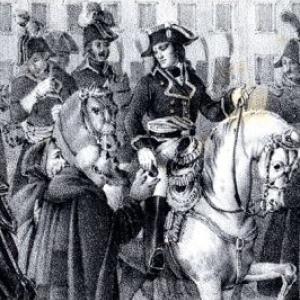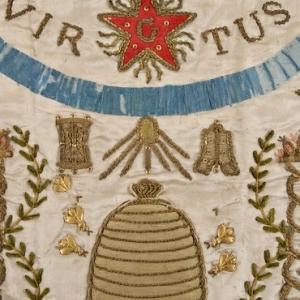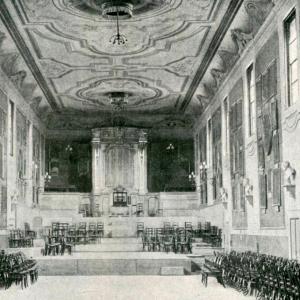Scheda
Antonio Aldini (Bologna, 27 November 1755 – 30 September 1826), nephew of Luigi Galvani, after graduating in law - "utroque iure" (1733) began a brilliant career at the university, combining his expansive knowledge on politics and economics.
He was a strong supporter of the "new idea", accepting the defense of the revolutionaries Zamboni and De Rolandis, but he perferred to combine those convictions with his own interests. When General Bonaparte arrived he ended the Pope’s authority (June 1796), and although knowing how anachronistic the dream of restoring the ancient idea of libertas was Aldini nevertheless went to Paris to further the cause of his city. Gifted with great political intuition, he soon decided to report directly to Bonaparte. As the president of the first Cispadana Congress, Aldini made the principle of federal union to prevail over the municiple and successively supported the union with the Cisalpina Republic. In the meantime, Aldini had a crucial role in the process of writing of Bologna’s Constitution (which he joined by force) and in the reconstruction of the Palazzo Pubblico (Municipality building) as the head office of the Cispadano Govenor, maintaining a remarkable ability to maneuver between the fluctuating political leanings of the time (1796-1797). He had a fundamental role in suppressing religious insitutions, and thanks to their quick sale of their assets, he quickly accumulated an enormous amount of heritage, as many of the city’s elites did. Unlike the others, he combined his unscrupulous accumulation with his notable entreprenerial ability and he reorganised the acquired lands into major productive units introducing an affluent cultivation of rice and hemp.
In 1798 he opposed the ratification of the alliance with France and returned to the shadows, and stayed there until, after the Austro-Russian reaction, when Napoleon’s brilliance shown again. After playing a major role in the Comizi di Lione (1802), he clashed again with another Italian politician, Milan’s Melzi d’Eril and was sidelined. Unlike many, Aldini never searched for autonomous power and it was exactly for this reason that Emperor saw him as the perfect candidate to fufill the role as Secretary of State (29 June 1805). A discrete councilor, sincere and listening to the Italian cause, Aldini, though residing in Paris, did not neglect his own city, during these years he endowed the avenues of the ring road with foliage, creating a public garden, in which motivated the University, with Pavia, as one of the most important in the empire. Equally awaiting was the care of his own legacy, from the Palace in Strada Maggiore, the large villa he wanted to build, and to the ancient Sanctuary of the Madonna of the Mount (Santuario della Madonna del Monte), which was to be a residence for Napoleon if he were to return to Bologna. But the works were destined to remain incomplete, the incidents that befell during the work were interpreted as signs of divine anger. As the destined recipient of a sad fate even his lavish residence that he repaired in 1811 outside Paris, in Montmorency, where artists such as painter Felice Giani lived on the first floor was not to be. After the defeat of Waterloo, his residence was pillaged by the victors and the building was demolished in 1818.
With the fall of Napoleon Aldini’s political and economic fortune also declined rapidly. At the Congress of Vienna he represented the city of Bologna and proposed Metternich, legal autonomy from the Hapsburg empire. In the following years he lived apart, administrating and carrying out assignments from the Pontifico government. He died in Pavia in 1826 and was buried in the Certosa, at Pantheon of illustrious men, werw his marble bust was placed. A plaster casted portrait of him is conserved at the Museum of the Risorgimento. A merited destiny because during his time, he was a significant person not only in Bologna, but in all of Italy.
Translation from italian language by Holly Bean.










